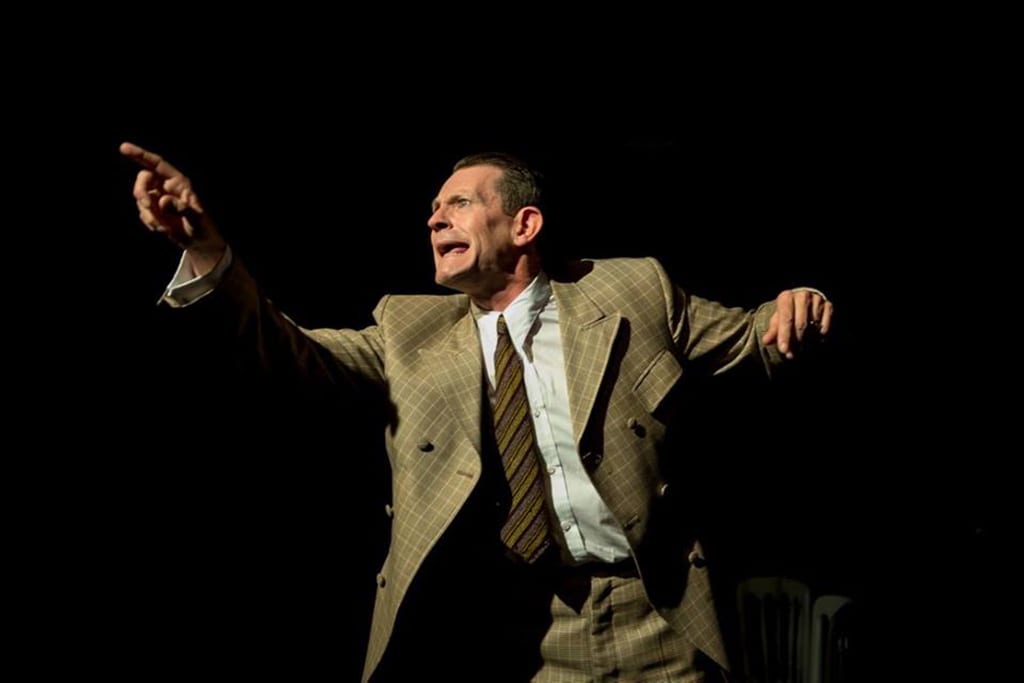I like the Jack Studio Theatre, neatly situated to the right of the bar off the Brockley Jack pub, south-east London. Perhaps I like it because it is the only theatre which has consistently produced interesting productions in the area where I live. Perhaps it’s the intimacy of the dark fifty-seat room. Perhaps, most definitely in fact, I enjoy the complimentary wine and chips served before shows. However, Howard Coyler’s 1938-Hitler Takes Vienna proves a little disappointing. Loosely adapted from Joseph Roth’s The Emperor’s Tomb, the production is an hour-long monologue delivered by the inebriated and waning Baron Trotta on the eve of Hitler’s arrival in Vienna. Despite Coyler’s ambitious monologue form, the production as a whole feels cautious and Trotta (David Bromley) never convincingly exerts himself over the audience.
Dramatic monologues are only for the courageous, so Bromley’s endeavours are admirable. Baron Trotta is a man of the ‘old world’; a Slav who consistently mourns for what has been lost since the outbreak of World War I. The Baron is a casualty of the shifting landscape of Eastern Europe in the first third of the twentieth century. Karl Swinyard’s stage design is excellent as we meet Trotta drowning his sorrows with cognac in an abandoned Jewish bar. Baron Trotta is an interesting character, but to some extent, fairly clichéd. At times Bromley’s Slavic accent falters and he is never completely convincing. Nevertheless, at points he is engaging and offers flashes of dark comedy.
This is a production about the collateral damage of the rise of Fascism by the late 1930s. Trotta is the personification of the demise of Eastern Europe at the hands of the Nazis. He awaits the arrival of Hitler in Vienna the following day and the inevitable fates of the city and himself, a Slav, reflect one another. Whilst the production is an enjoyable hour, one feels that the production is a little tired. World War II has been used as an artistic backdrop to such an extent that we have come to expect something new- a fresh twist or representation of its tragedies. This production sadly, does not offer that.

